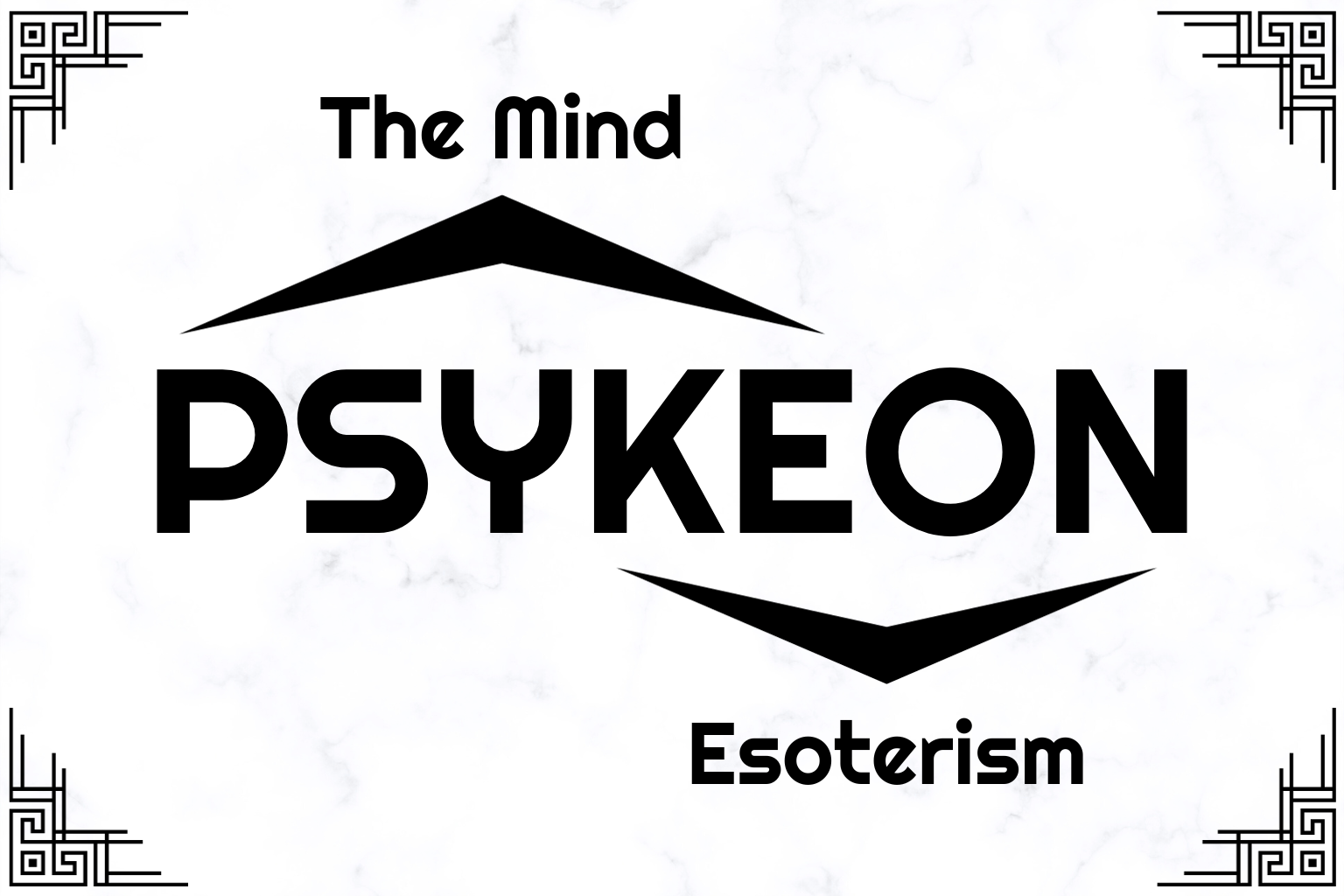Psykeon (surname) can be broken down into two fragments:
Psyche = The soul, the mind, consciousness
Kykeon = Psychoactive brew of the Eleusinian Mysteries.
As such, the surname Psykeon represents a bridge between the study of consciousness and the secrets of ancient esoteric traditions. At Psykeon, we believe that modern psychology and the timeless wisdom of esoteric practices can help inform our emerging understanding of altered states of consciousness.
A bit like the Mysteries at Eleusis, which were open to everyone, Psykeon holds a space where people from around the world can gather online and explore their consciousness in meaningful and transformative ways.
Our respective magical motto also hold their own meaning:
Nikodemus of Psykeon: “Victory of the People” when it comes to the exploration of altered consciousness. A nudge to Nikodemus’ deep belief in cognitive liberty and of his role as founder of this blog.
Kalliope of Psykeon: “Beautiful Voice” regarding the exploration of altered states of consciousness. A nudge to Kalliope’s deep appreciation of the beauty in life and of her grace as a martial artist.
A quick overview of the Eleusinian Mysteries
Over a period spanning about two thousand years, the Eleusinian Mysteries were one of the oldest and most secretive religious practices in Ancient Greece, attracting pilgrims of all social status from all over the Hellenic world. This series of rituals took place in the city of Eleusis, near Athens, and were celebrated in honor of Demeter and Persephone, the goddesses of agriculture and fertility, respectively. The exact nature of the rituals is unknown, as no written records of the ceremonies were kept and initiates were forbidden from speaking about them under penalty of death.
From the fragments of information that we do have, found in the works of ancient Greek writers and philosophers, in archeological findings at Eleusis, we know that the Mysteries were separate into two parts, the preliminary Lesser Mysteries which served as preparation for the upcoming mystical experiences, and the Greater Mysteries, the yearly celebration lasting nine days, where initiates participated in a variety of mystical rituals and ceremonies. Let us focus on the later Mysteries. On the first day, the Initiates purified themselves in the sea and offered animal sacrifices to the gods, before gathering in Athens to begin the procession to Eleusis a few days later. The procession was led by the hierophant, the high priest of the Mysteries, and was a solemn and reverential affair. When the initiates arrived in Eleusis, they were taken to the Telesterion, a massive hall that could accommodate thousands of people, and where the initiates participated in the ceremonies. The exact nature of the rituals performed in the Telesterion is unknown, but according to some accounts, the initiates were led through a series of chambers, each of which represented a stage in the Homeric Hymn to Demeter, as she searched for her daughter Persephone who had been abducted by an Hades, the god of the underworld. This reenactment of Persephone’s journey into the world of the dead and Demeter’s search of her daughter, was believed to be a way for the initiates to connect directly with the Divine and gain a deeper understanding of the mysteries of the cyclical nature of the universe, of life and death. On the final day of the Mysteries, the initiates were led in a procession back to Athens, where they participated in a final ceremony to mark the end of the rituals. The initiates were then free to return to their ordinary lives, but they were forever changed by their experience of the Mysteries.
Among the various rituals performed during the Mysteries, the consumption of the kykeon, a drink made from barley, water, and mint, was particularly important. Several scholars have suggested that the drink may have also contained psychoactive compounds, most likely ergot (a fungi acting as a precursor to the synthesis of LSD) or hallucinogenic mushrooms. Paired with powerful symbolism and the right ceremonial context and suggestions, these substances could have induced intense altered states of consciousness, as well as potentially transformative insights about the themes related to the ceremonies; the cycles and interconnectedness between life and death. Nevertheless, the exact recipe for this brew is unknown, as it is believed that the drink’s recipe, like the rest of the ceremonies, was secretly passed down orally from generation to generation with only the initiates being privy to the secret recipe. Some allusions to the psychotropic effects of this brew can be found in Homer’s Odyssey, where the kykeon that Circe offered to Odyseus’s men was explicitly described as psychotropic. Greek poet Hipponax, famous for his vulgar and shocking ritual poetry, has ambiguously described the kykeon as a “remedy against poverty”, a phrase interpreted by some researchers as meaning a “remedy against moral wickedness/grief”, which, given the Homeric background of Hiponnax’s work, would align with the psychoactive-supported goal of the Eleusinian Mysteries; release, and eternal peace in life and death.
Furthermore, when taking into account the re-enactment of Demeter’s journey to the Underworld during the Mysteries, the ritual drinking of the kykeon could be a way for the pilgrims to reenact a part of the Homeric Hymn to Demeter, where the grieving Demeter, on her way to Hades and her daughter, broke her fast with Celeus king of Eleusis around a drink of the kykeon. This act is understood by some researchers as symbolizing Demeter’s release from her grief. During this ritual, the initiates are thought to have felt significant alterations of their mental processes and emotions, supported by the psychoactive kykeon and the symbolic and poetic context and meaning of the ritual. In this profound state, they would re-experience Demeter’s grief, as well as her release from this state, and feel a transcendent understanding of life and death.With the rise of Christianity in Latin Europe of late Antiquity and Middle Ages, non-Christian pagan traditions were systematically condemned by the Church as demonic, and subsequently eradicated from the continent, despite attempts at revival. As such, after two thousand years, the Eleusinian Mysteries came to an end in the 4th century CE, leading to the loss of their secret rituals and of the composition and role of the kykeon.
References
Bizzotto, J. (2018). The hypothesis on the presence of entheogens in the Eleusinian Mysteries. Medicina Historica, 2(2), 85-93.
Brown, J. B., & Brown, J. M. (2016). 4 – Eleusinian Mysteries. In The Psychedelic Gospels: The Secret History of Hallucinogens in Christianity (pp. 48–62). chapter, Park Street Press.
Keller, M. L. (2009). The Ritual Path of Initiation into the Eleusinian Mysteries. Rosicrucian Digest #2. 28-42.
Rosen, R. M. (1987). Hipponax Fr. 48 Dg. and the Eleusinian Kykeon. The American Journal of Philology, 108(3), 416–426. https://doi.org/10.2307/294663
Valencic, I. (1994). Has the Mystery of the Eleusinian Mysteries been solved. Yearbook for Ethnomedicine and the Study of Consciousness, 3, 325-336.



